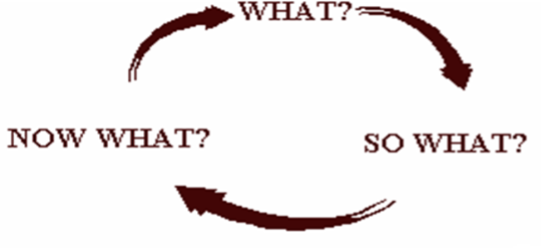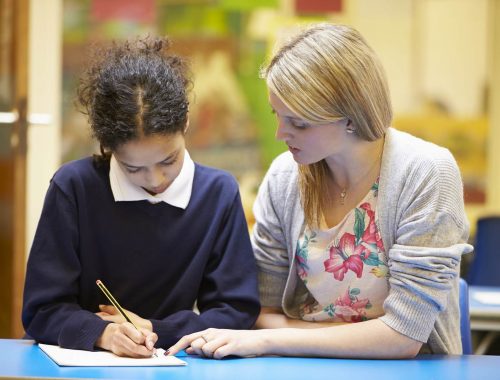Simulated Interviews: Overcome the Nerves

The dreaded interview. From applying to part time jobs and places on programmes to assist my academic and working skills, I have had to participate in many. My interview experiences in the past have ranged from abysmal to good. I’ve never gone away from an interview feeling 100% sure that it couldn’t have gone better. No matter my preparedness for the interview or faith in my ability to take on the challenge that may come after a successful interview I always felt nervous about them. I have always seen the importance of interviews but the notion that someone can learn all they need to know about me and my ability for a job in a short space of time was always enough to shake my confidence.
As nerve-racking as the idea of simulated interviews where I was confident the performance and evaluation of a simulated interview would illustrate what improvements I need to make for future interviews. However, I am not the only one who seems to find value in this. According to results of a study in 2013 of college students who participated in a survey, 79% of them reported that in using career services in universities, “practice interviews were among the most helpful service” (Stocco, et al., 2017). To demonstrate what I gained from the simulated interviews I will use Borton’s model of reflection (Borton, 1970).

What?
Going into the interview I knew it was important to find a job interview that I felt was representative of the skills I feel are strongest. These skills were in editing, something I have done a lot of throughout my degree and have been able to further improve in them throughout the course of my placement. I found a job through one of the websites provided by my tutors on Video Collective for a job with Park Village (Fig. 2). Over the last few years, I have gained proficiency in several editing software e.g., Final Cut Pro, Avid Media Composer and DaVinci Resolve. The only requirement in the job application that I did not have was the 1-year experience. Despite this I still felt I was more than capable to answer any questions I may be asked.

Despite this interview simply being casual in every sense of the word I still managed to find myself getting nervous. This resulted in me not always keeping eye contact, feeling flustered in answering the questions and resorting to my annoyingly lifelong habit of picking my fingernails and fidgeting. Despite these small setbacks I felt I answered each question in an effective and detailed manner that displayed the strengths and experience I have gained. These are not just in the field of work I aim to pursue but in my previous part time jobs and hobbies.
So What?

The feedback I received from my peers was mostly positive but certainly left me with much to reflect on. In all categories I scored four out of five stars. While this is positive, it suggests that improvements can be made. The observations they made about my interview were mostly things that I knew. These included comments about my eye contact and body language which I believe are related to my fidgeting and picking my fingernails. They also commented that I could have made better use of the STAR method (Fig. 3) of answering questions, having brought things up I clearly thought of in the moment. I don’t object to this analysis, while I felt I answered the questions effectively, I did feel myself getting side-tracked trying to provide as much detail as possible. I need to remember to always relate my experience back to the question that is being asked.
What Now?
Going forward I see it is important to be as prepared as I can be going into interviews. While I believe I was well prepared in talking about the job and relating it to my skills and experience, I should look at the possible questions I can be asked. There are many questions that overlap in different interviews so being familiar with well-known questions, I can better prepare my answers. This would afford me time to remain calm and make sure that I am appropriately relating my response to the questions. I believe I have often felt nerves in interviews in fear that the interviewers might hold some judgments about my personality or ability. For future reference it is essential that I remember that “interviewing is intentionally defined as a form of conversation rather than a form of questioning” (Gordon, 1998). This serves as a reminder that employers are trying to gauge personalities, not just the skills and experience people can bring to the workplace.

Conclusion
Coming away from the simulated interviews and the evaluation from my peers I believe that one of my biggest issues when it comes to these settings is having confidence in myself. I have always found the idea of selling myself to be difficult. In realising that my poor body language was a result of my nerves the group reassured me that I had the knowledge of the job requirements and experience that I shouldn’t feel nervous. Borton’s model of reflection was sufficient in helping me to succinctly recount and analyse the observations that myself and the group the made about my interview technique. Over the years I know that I have improved at interviews but knowing what may hold me back in the future has highlighted exactly how I can improve further. Hopefully one day I can come out of these situations feeling 100% sure that the interviewers see my best self.
Bibliography
Borton, T. (1970) Reach, Touch and Teach. London: Hutchinson.
Gorden, R.L., 1998. Basic interviewing skills. Waveland Press.
Stocco, C.S., Thompson, R.H., Hart, J.M. and Soriano, H.L., 2017. Improving the interview skills of college students using behavioral skills training. Journal of Applied Behavior Analysis, 50(3), pp.495-510.
You May Also Like

The World of Theatre upon Reflection
30 November 2022
Challenge Accepted Sir!
18 April 2023
